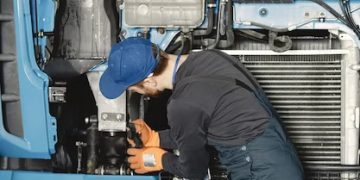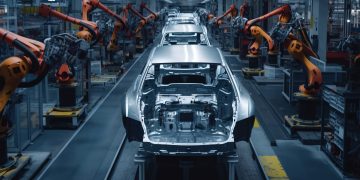Do you want to be a part of the future of transportation in India and contribute to the country’s efforts to reduce carbon emissions? If yes, then the electric vehicle (EV) industry in India is an excellent career choice for you. The Indian government’s focus on promoting sustainable transportation and reducing pollution has led to significant growth in the EV industry, creating numerous career opportunities for skilled professionals. However, to make the most of these opportunities, professionals must have the necessary skills and expertise. This is where Automotive Skills Development Council (ASDC) comes in. In this article, we will explore the role of ASDC in promoting skill development in the EV industry and unlocking career opportunities for professionals.
EV Industry: A Booming Career Sector
Indian EV industry is still in its nascent stage, but it is poised for tremendous growth in the coming years. According to a report by the International Energy Agency (IEA), India is expected to become the second-largest EV market in the world after China by 2030. The Indian government is also pushing for the adoption of EVs, with a target of having 30% of the vehicles on the road run on electricity by 2030. A report by NITI Aayog, the EV market in India could reach a market size of US$300 bln by 2030. This growth is creating numerous career opportunities for professionals with the right skills and expertise.
Importance of Skill Development in EV Industry
EV industry has created a new demand for skilled professionals, from engineers and designers to technicians and maintenance workers. As the EV industry evolves, the need for skilled professionals also increases. Skill development is crucial for the growth and success of the industry, as it helps create a workforce with the knowledge and expertise to address the complex challenges associated with EVs. One of the main benefits of skill development in the EV industry is the creation of new job opportunities.
As the industry expands, more jobs are being created, and there is a need for a workforce that can keep up with the changing technology. With the right training and education, individuals can take advantage of these job opportunities and build a career in the EV industry. Skill development also plays a crucial role in improving the quality of EVs produced. With the right skills, engineers and designers can create EVs that are more efficient, durable, and safe. Skilled technicians and maintenance workers can ensure that these EVs remain in good working condition and perform at their best, improving the overall customer experience.
In addition to creating jobs and improving the quality of EVs produced, skill development is also important for the growth of the EV infrastructure. The installation and maintenance of charging stations, battery storage systems, and other components of the EV infrastructure require skilled workers. Skilled professionals can ensure that these components are installed and maintained correctly, reducing downtime and ensuring the smooth operation of the infrastructure.
ASDC’s Role in Promoting Skill Development in the EV Industry
ASDC is a non-profit organisation committed to promoting skill development in the automotive industry, including the EV sector. The council offers training and certification Programmes to ensure that professionals in the industry have the necessary skills and knowledge to excel in their roles. ASDC offers training Programmes in various areas of the EV industry, including manufacturing, maintenance, repair, and charging infrastructure. Skill QPs provides hands-on training and practical experience, preparing technicians including soft skills such as communication, teamwork, and problem-solving, which are essential for success in the industry. ASDC also organises various events and competitions to promote skill development and talent retention in the EV industry. These events provide a platform for professionals to showcase their talents, gain recognition, and network with industry experts.
Programme and Initiative from ASDC for EV Industry
ASDC is a council that is primarily focused on upskilling the existing workforce for the electric vehicle (EV) industry. ASDC has initiated various Programmes and collaborations with industry manufacturers, training partners, and academic institutions to upgrade the skills of the workforce. The council’s strategy involves creating qualifications and curricula using National Occupation Standards (NOS), which are formally approved by the National Skill Qualifications Committee under NCVET.
ASDC’s initiatives include the Electric Mobility Nanodegree Programme, a six-month Programme in collaboration with DIYguru, for individuals with an engineering or diploma background, and the Dakshta training Programme, in partnership with Autobot India and MG Motor, focusing on artificial intelligence and EVs. Autobot Academy has also introduced a Programme called ‘EV Engineering: Architecture and Components,’ future-proofing job seekers in the EV technology sector. ASDC’s commitment to staying current with industry advancements ensures their curriculum remains relevant and equips workers with the latest skills. In addition, Toyota Kirloskar Motor launches ‘xEV SHIKSHA’ to create awareness about electrified vehicle technologies, benefits to customers, and the environment.
Another area of focus for ASDC is training drivers for electric buses in urban environments. The workforce has to be upskilled on safety norms related to electric vehicles and its devices. With Castrol India and several other partners, ASDC started a Programme to upgrade the skills of the existing workforce in the automotive industry.
ASDC has identified new areas of work such as EVs, sustainability, safety, and diagnostics and provides both entry-level and upskilling and reskilling opportunities for existing industry professionals. During the pandemic, ASDC revised its Qualification Packs/curriculum with valuable input from 300+ industry experts.
How EV Start-ups can Benefit from ASDC
EV start-ups can greatly benefit from associating with the Automotive Skills Development Council (ASDC) in India. ASDC is only a sector skill council that works towards developing and enhancing the skills and knowledge of individuals in the automotive industry. By collaborating with ASDC, EV start-ups can access a range of training Programmes, workshops, and resources that can help them to develop their skills and capabilities. ASDC has accredited several training providers across India, who offer a range of courses in the automotive industry. EV start-ups can collaborate with these training providers to develop their skills and knowledge. By working with ASDC-accredited training providers, EV start-ups can ensure that they receive high-quality training and education that meets industry standards.
Leveraging ASDC Initiatives for Jobseekers
The ASDC initiatives provide a unique opportunity for jobseekers to gain employment in the automotive industry.
By identifying the required skills, enrolling in training Programmes, getting certified, accessing ASDC-accredited training providers, and participating in job fairs, jobseekers can significantly enhance their employability in the industry.
Getting certified is another way to showcase expertise and improve chances of getting employed. ASDC provides certification Programmes that are recognised by leading organisations in the industry. Additionally, job seekers can access ASDC-accredited training providers to get trained and certified in specific skills required in the automotive industry. These training providers offer high-quality training Programmes that meet industry standards, allowing job seekers to improve their skills and knowledge and increase their chances of getting employed.
ASDC also has a placement portal where job seekers and employers can interact and explore job opportunities in the automotive industry. The council also organises job fairs from time to time, providing a platform for job seekers to meet potential employers and get on-the-spot job offers. Overall, the various initiatives undertaken by ASDC can be leveraged by job seekers to enhance their employability in the automotive industry.



























































